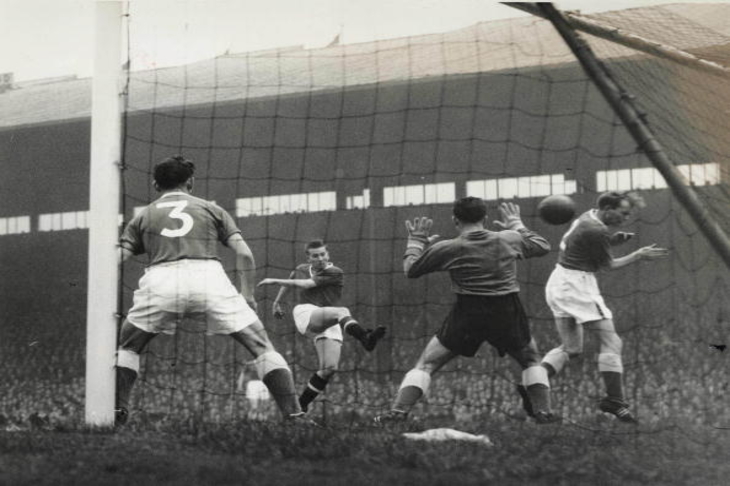I must have missed the memo when it became compulsory for major football matches to operate as a marketing opportunity for the game’s marquee players, but that was what we got at Kiev after Liverpool were outmuscled and outplayed by a flinty-eyed Real Madrid. After Ronaldo announced that his time at Madrid was in the past, then our very own Gareth Bale, he of the annoying man-bun and sublime skills, in a rather graceless piece of scene-stealing, decided to ask for a transfer. Live on TV. Well, you do the math. He is on £300,000 a week (or £600,000 depending on who you trust), but assuming someone somewhere has to come up with a lot of loot.
In a timely coincidence, Bale’s remarks come just as an excellent book is published by my friend Jon Henderson. When Footballers Were Skint (Biteback) is about the game’s ‘golden age’, before the lifting of the pay cap in 1961. It was a rich and colourful time, peopled by hard, physical players who gave little mercy in the tackle and didn’t expect much back. Fleet wingers and battering-ram centre-forwards, and fans who didn’t want to see whingeing on the pitch. Fans, too, who shared the same streets as the players and took the same public transport to the match. It was a time when cigarettes were given to the players as Christmas presents by the club, and a good fry-up was the perfect way to start the day.
The wage cap meant that Bale’s weekly pay packet is about 20,000 times more than the maximum that the great Bobby Charlton was entitled to when he started playing for Manchester United in 1956. At that time the maximum was £15, a figure that by 1961 had risen to £20 a week. Because all the old pros earned so little, when they finished playing they immediately went back to work out of necessity. Most settled for jobs they loved, but which would make the modern player cringe.
Here’s Tommy Banks, a left-back for Bolton and an England international, hod-carrying 160lb loads of bricks up three 40-rung ladders roped together. And here’s Alex Dawson, a member of Man United’s 1958 Cup Final team, doing ‘all the dirty jobs’ as a maintenance worker at Corby steel works. His first pay packet, with a healthy whack of overtime, came to more than 100 quid, easily eclipsing his best weekly wage in nearly 20 years of professional football.
A different era, certainly. But much worse? I am not so sure. There was then a strong bond between players and fans. As Alec Jackson, a West Brom player in the 1950s, tells Henderson, fans ‘bloody treasured you. You couldn’t believe them, coming up wanting to help you. They weren’t supporters in those days, they were family’. I doubt you’d find anyone saying that now. Certainly not Gareth Bale.
So farewell, then, Indian Premier League. The final wasn’t that great, Watto’s sensational unbeaten century for Chennai notwithstanding, but it is the gift that keeps on giving. Twenty20 is stadium cricket and the only countries with proper stadiums are India and Australia. We have a handful of venues that stand half a chance — Lord’s, the Oval, Southampton, Edgbaston, Manchester and Leeds — but compared with Eden Gardens or the MCG they feel a bit deckchair-and-picnic-hamper.
Mark you, none of this will matter soon. If our Test team gets any worse, it will soon be time’s up for cricket. There was a good crowd of red-faced men at Lord’s of course, because there always is, burning in the sun, queuing for the G&T tent and shucking their oysters. But it won’t be like that everywhere if we play such abysmal, uncompetitive cricket. Get up off your knees, Joe Root, or no one will be arsed to watch.







Comments